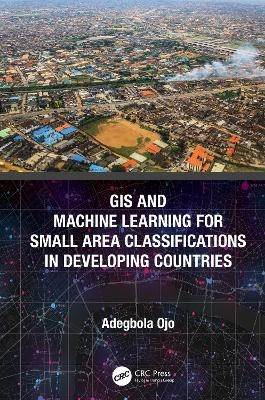
GIS and Machine Learning for Small Area Classifications in Developing Countries
CRC Press (Verlag)
978-0-367-32244-1 (ISBN)
Since the emergence of contemporary area classifications, population geography has witnessed a renaissance in the area of policy related spatial analysis. Area classifications subsume geodemographic systems which often use data mining techniques and machine learning algorithms to simplify large and complex bodies of information about people and the places in which they live, work and undertake other social activities. Outputs developed from the grouping of small geographical areas on the basis of multi- dimensional data have proved beneficial particularly for decision-making in the commercial sectors of a vast number of countries in the northern hemisphere. This book argues that small area classifications offer countries in the Global South a distinct opportunity to address human population policy related challenges in novel ways using area-based initiatives and evidence-based methods.
This book exposes researchers, practitioners, and students to small area segmentation techniques for understanding, interpreting, and visualizing the configuration, dynamics, and correlates of development policy challenges at small spatial scales. It presents strategic and operational responses to these challenges in cost effective ways. Using two developing countries as case studies, the book connects new transdisciplinary ways of thinking about social and spatial inequalities from a scientific perspective with GIS and Data Science. This offers all stakeholders a framework for engaging in practical dialogue on development policy within urban and rural settings, based on real-world examples.
Features:
The first book to address the huge potential of small area segmentation for sustainable development, combining explanations of concepts, a range of techniques, and current applications.
Includes case studies focused on core challenges that confront developing countries and provides thorough analytical appraisal of issues that resonate with audiences from the Global South.
Combines GIS and machine learning methods for studying interrelated disciplines such as Demography, Urban Science, Sociology, Statistics, Sustainable Development and Public Policy.
Uses a multi-method approach and analytical techniques of primary and secondary data.
Embraces a balanced, chronological, and well sequenced presentation of information, which is very practical for readers.
Dr. Adegbola Ojo is Director of Teaching and Learning, Programme Leader, and Senior Lecturer in Urban Geography and Applications of Big Data at the School of Geography, University of Lincoln, UK. He received his PhD in Quantitative Human Geography from the University of Sheffield, his MSc in Geographic Information Science from the University College London, and his BSc in Geography and Planning Sciences from the University of Ado-Ekiti, Nigeria. His research interests are focused in understanding and representing social and spatial dynamics and intricacies of population behavior within a framework of Interdisciplinary Studies, Population Geography, Quantitative Social Science, and Computer Modeling. His research activities are grouped around the development and application of small area classifications, geographic information systems and geographic information science for informing public policy. Dr. Ojo has published many monographs and research articles with reputable journals. He has designed and delivered lectures, workshops, seminars, tutorials, practical labs, and assessments to a range of undergraduate and graduate students and working professionals.
PART 1: BACKGROUND, CONCEPTS AND DEFINITIONS
1. Introduction
2. Origins and Concept of Social Area Classification
3. Public Policy Prospects of Small Area Classifications for Developing Countries
4. Reasons for Slow Proliferation of Area Classifications across Developing Countries
PART 2: UNDERLYING TECHNIQUES AND DEPLOYMENT APPROACHES
5. Building Blocks: Spatial Data Preparation
6. Machine Learning Methods for Building Small Area Classifications
7. Visualizing Small Area Geodemographics Data and Information Products
PART 3: ILLUSTRATIVE APPLICATIONS AND CONCLUSION
8. The Grouping of Nigerian Local Government Areas
9. Combining Continuous and Categorical Data to Segment Philippines Barangays
10. Modeling Temporal Distribution and Seasonality of Infectious Diseases with Area Classifications
11. Segmenting Gender Gaps in Levels of Educational Attainment
12. Conclusion
| Erscheinungsdatum | 16.01.2021 |
|---|---|
| Zusatzinfo | 33 Tables, black and white; 7 Illustrations, color; 61 Illustrations, black and white |
| Verlagsort | London |
| Sprache | englisch |
| Maße | 156 x 234 mm |
| Gewicht | 453 g |
| Themenwelt | Naturwissenschaften ► Geowissenschaften ► Geografie / Kartografie |
| Technik ► Bauwesen | |
| Technik ► Umwelttechnik / Biotechnologie | |
| Weitere Fachgebiete ► Land- / Forstwirtschaft / Fischerei | |
| ISBN-10 | 0-367-32244-7 / 0367322447 |
| ISBN-13 | 978-0-367-32244-1 / 9780367322441 |
| Zustand | Neuware |
| Haben Sie eine Frage zum Produkt? |
aus dem Bereich


